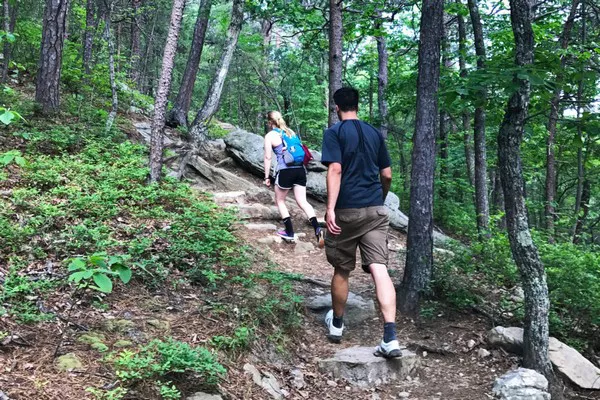In a world marked by constant connectivity and urbanization, the allure of escaping into nature through hiking and trekking has never been stronger. Beyond being a recreational activity, hiking and trekking offer profound physical, mental, and emotional benefits that contribute to overall well-being. From the soaring mountain ranges to the serene forest trails, these outdoor pursuits provide more than just a scenic backdrop—they offer a pathway to self-discovery, improved fitness, and enhanced mental clarity.
Physical Health Advantages
The physical benefits of hiking and trekking are extensive and multifaceted. These activities provide an excellent cardiovascular workout, promoting heart health and improving endurance. Whether navigating steep ascents or traversing varied terrain, hikers engage multiple muscle groups, leading to enhanced strength and flexibility. Moreover, the weight-bearing nature of hiking helps in building bone density, reducing the risk of osteoporosis over time.
Unlike repetitive gym workouts, hiking and trekking are immersive experiences that provide a full-body workout in a natural setting. The varying landscapes encountered during a trek—such as hills, rocky paths, and river crossings—challenge different muscle groups, resulting in a more balanced and holistic form of exercise. Regular hiking has also been linked to weight loss and improved metabolism, making it an effective component of a healthy lifestyle.
Mental and Emotional Well-being
The mental and emotional benefits of hiking and trekking are equally compelling. Spending time in nature has a profound impact on reducing stress and anxiety levels. The sights and sounds of the wilderness can calm the mind, offering a respite from the pressures of daily life. Research indicates that exposure to natural environments can lower cortisol levels—the hormone associated with stress—resulting in a more relaxed state of mind.
Furthermore, hiking and trekking foster a sense of mindfulness and presence. The act of walking amidst nature encourages introspection and a deep connection with the surroundings. This meditative quality of hiking promotes mental clarity and creativity, often leading to insights and solutions that might elude us in our busy routines.
Social and Community Benefits
Hiking and trekking are inherently social activities that promote bonding and camaraderie. Whether hiking with friends, family, or joining organized groups, these experiences create opportunities for meaningful interactions and shared adventures. Group hikes not only strengthen relationships but also provide a sense of community and belonging.
Moreover, hiking can be a gateway to exploring new cultures and landscapes. Trekking trails around the world often traverse through remote villages and historical sites, offering insights into diverse cultures and traditions. This cultural exchange fosters empathy and understanding, enriching the overall experience of the journey.
Connection with Nature
One of the most profound benefits of hiking and trekking is the intimate connection with nature it provides. Immersed in the natural world, hikers experience a deep appreciation for the environment and its preservation. This firsthand connection fosters environmental awareness and encourages sustainable practices.
Through hiking, individuals develop a sense of stewardship towards the landscapes they explore, advocating for conservation efforts and responsible outdoor recreation. This connection with nature not only benefits personal well-being but also contributes to the broader goal of environmental sustainability.
Personal Growth and Achievement
Hiking and trekking often involve overcoming challenges and pushing personal boundaries. Whether summiting a peak or completing a long-distance trail, these experiences cultivate resilience and self-confidence. Each hike presents a series of obstacles to be navigated—both physical and mental—providing opportunities for personal growth and achievement.
The sense of accomplishment derived from conquering a challenging trail translates into other areas of life, instilling a can-do attitude and a belief in one’s capabilities. Many hikers find that the lessons learned on the trail—persistence, adaptability, and self-reliance—prove invaluable in facing life’s everyday challenges.
Accessibility and Inclusivity
One of the remarkable aspects of hiking and trekking is its accessibility to people of various ages and fitness levels. From leisurely nature walks to strenuous mountain expeditions, there are trails suitable for everyone. Hiking can be adapted to individual preferences and abilities, making it a versatile activity for people of all backgrounds.
Furthermore, the simplicity of hiking—requiring minimal equipment and often free access to trails—makes it an inclusive pursuit. Unlike many sports that require specialized skills or equipment, hiking invites anyone with a desire to explore nature to participate.
Conclusion
In summary, hiking and trekking offer a holistic approach to health and well-being, integrating physical exercise with mental rejuvenation and emotional balance. The transformative power of nature is evident in the myriad benefits these activities provide, from improved fitness and reduced stress to enhanced personal growth and connection with the environment.
As more people seek respite from the demands of modern life, the timeless appeal of hiking and trekking continues to resonate. Beyond the tangible health benefits, these outdoor pursuits offer a profound sense of fulfillment and connection—a testament to the enduring significance of exploring the great outdoors. Whether embarking on a day hike or embarking on a multi-day trek, the rewards of hiking and trekking extend far beyond the trail, leaving an indelible mark on those who venture into nature’s embrace.

